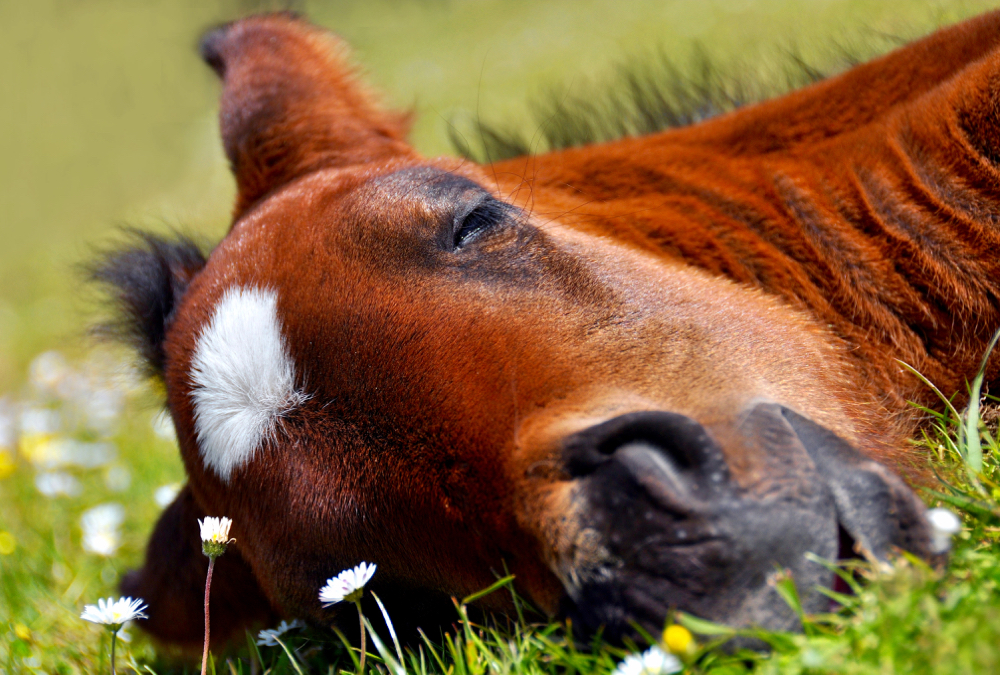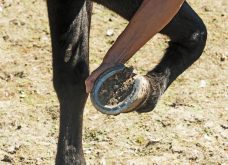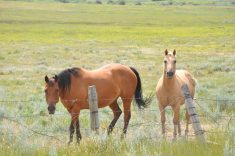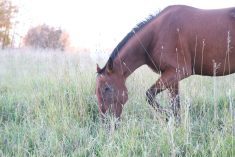In horses, as in humans and many other animals, the immune system is a powerful biological force that plays a profound role in maintaining health. Most of the time, it works so effectively that its true value is often overlooked, even minimized.
The traditional view of an immune system is as an army poised for the simple eradication of pathogens. While accurate, this description vastly oversimplifies immunity. Scientific understandings have now evolved to recognize the remarkable sophistication and intelligence of the immune system that continually returns the body to a state of homeostasis, or stable equilibrium, within its environment.
Read Also
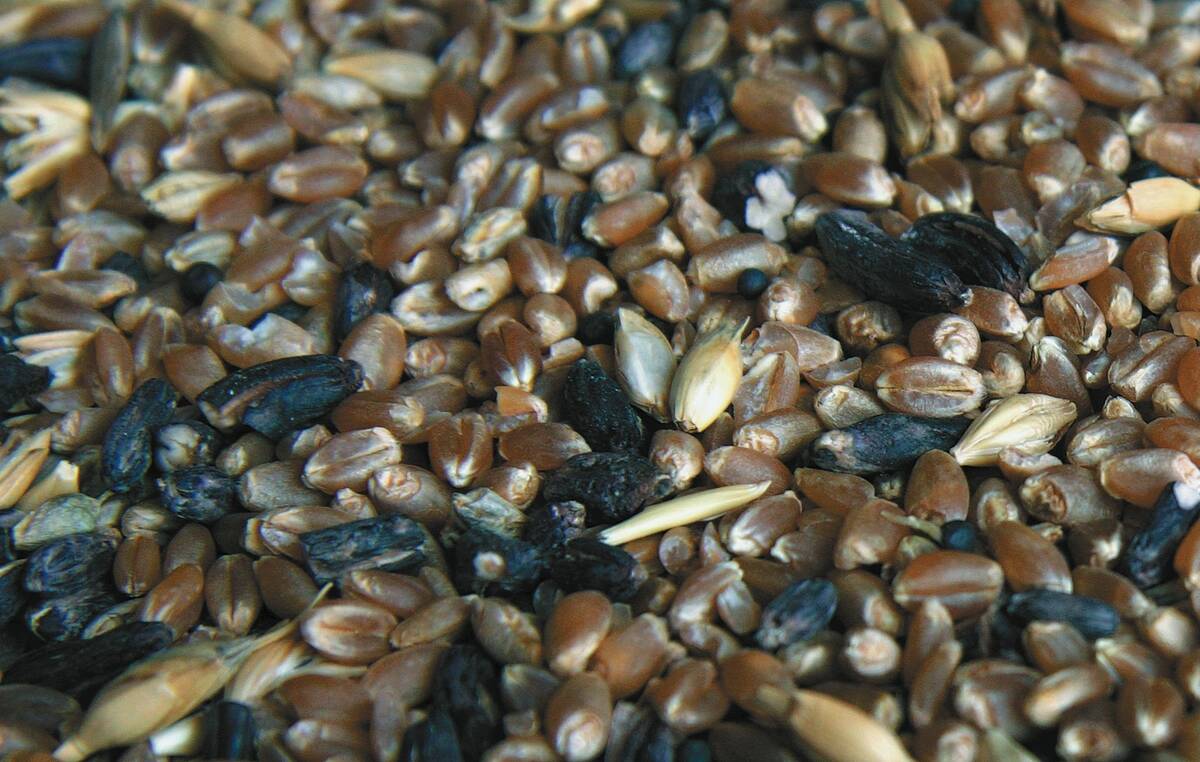
Feeding ergot: research on ergot-impacted grain and beef cattle continues
Saskatchewan research hopes to tease out better ways for Canadian beef farmers to manage ergot consumption in their herd’s feed
From this newly acknowledged viewpoint the immune system trends towards living in balance with the virome and the microbiome, because when studied closely viruses, bacteria, protozoa and fungi live in every niche of the biological body and systems anyways.
The horse is part of a diverse and intelligent ecosystem and its life force is nurtured by a vast microbial community. Nowhere is this more evident than in the hindgut of the horse where a teeming microbial garden acts as the critical link for fermenting plant fibre into usable and bio-available energy, amino acids, fatty acids, vitamins and minerals for the horse. The horse could not survive without this partnership.
Checks and balances are critical to healthy immunity. If this elegant communication is disturbed, the result is either a weak response with insufficient policing of pathogens or rogue cancer cells — or conversely the response is exaggerated and the over-policing causes havoc in the expression of allergies, auto-immune diseases and hypersensitivities such as sweet itch, asthma, hives and diarrhea.
The immune system does not appear to seek total elimination of parasites, viruses, micro-organisms and fungi — rather it seeks a friendly and co-operative existence within biodiversity. For example, a low level of intestinal parasites appears to offer a beneficial degree of street immunity to the horse and total annihilation of the worm populations leaves its equine host vulnerable should the parasite regain introduction. For this reason, it is in the best interest of the horse’s biology to find a common ground in living with some degree of parasitic presence.
These new discoveries regarding the complexities of the immune system can be overwhelming to comprehend, yet the good news is that a complete understanding of the immune system is not necessary for all parties to benefit from its immense value. Similarly, a full understanding of electricity is not necessary to realize its benefit when the switch is turned on. However, it is important to know about the switch.
Although the electricity analogy is not quite perfect it does serve its purpose to illustrate that certain factors are universally recognized as caring for, enlivening and vitalizing the horse’s immune system. Conversely, certain factors are recognized for their abilities to hamper and hinder the immune system’s ability to function effectively in its devotion to the body.
Marketing campaigns endorse the idea of boosting or stimulating the horse’s immune system with supplementation, yet this is rarely the case. Rather it is the seemingly mundane and day-to-day goings-on that truly care for the horse’s immune system and then allows the immune system to take care of the horse. A horse that looks healthy on the outside is very likely to have a healthy immune system. Aim to care for and support the immune system, not necessarily to boost or stimulate it.
Equine sleep and rest are rarely considered as significant contributors to the well-being of the horse — yet meaningful rest is of particular importance to the health of an animal’s immune system. Unfortunately, the ill impact of exhaustion, fatigue, and travel upon the horse’s immune system often goes unrecognized in youngsters in training and performance animals.
Horses need suitable environmental conditions, sufficient space and time and healthy social relationships to achieve the deep states of sleep and rest that allow them to access and restore their bodies’ own source of innate and highly intelligent healing.
Immune health is closely linked to gastrointestinal health with 70 to 80 per cent of the immune system being housed in the lining of the gut. Therefore diet and dietary practices have the ability to deeply influence the state of the immune system. Continuous access to quality forage diets, water and proper salt and mineral licks allows the digestive tract to function optimally without burdening the immune system.
The immune system of the equine is greatly affected by air quality and expresses its struggle fairly quickly in environments such as stables, arenas and dirt pens where the horse is exposed to dust particles, airborne particulate matter, humidity and feeds containing mould and/or spores. This creates both inflammatory and infectious vulnerabilities in the respiratory system as the system is taxed with housekeeping duties in an attempt to clear the airways.
Functionality of the horse’s immune system is reliant upon muscle activity and movement to power the rivers of lymphatic vessels that course throughout its body. Sufficient physical movement is necessary to move cellular resources and signalling molecules to their proper locations within the body and in turn remove cellular debris, toxins and wastes out of the body. When movement is inadequate stasis occurs within the lymphatic system. This stagnation markedly interferes with and reduces the effectiveness and responsiveness of the horse’s immune system.
Biosecurity for the immune system involves more than vaccination and distancing programs for the horse. It also implies a responsible type of biological vigilance which accounts for the judicious use of vaccines, dewormers, fly sprays, shampoos, supplements and feed additives and exposure to electromagnetic radiation fields, overhead power lines, artificial lighting, herbicides and pesticides.
Each of these elements and certainly their accumulated effects can encumber and exhaust the immune system and thus disrupt its abilities to proficiently and seamlessly perform its duties.
The importance and vulnerabilities of the immune system’s seemingly invisible qualities are crucial to appreciate. It is with good fortune that the new learnings about the immune system gleaned from the current pandemic can be applied to our equine companions.






